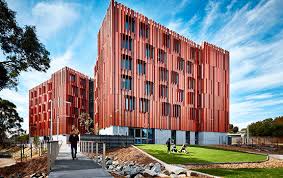Monash receives $2.23m MRFF funding for COVID-19 recovery projects
Monash University has received $2.23 million in Federal Government funding for three research projects into Australia’s COVID-19 response.
Federal Health Minister, the Hon. Greg Hunt, announced the grants today as part of the Medical Research Future Fund (MRFF) Coronavirus Research Response.
Monash received more than half of the $4 million distributed through two grant rounds to four institutions.
Minister Hunt said the grants aimed to develop high priority digital health infrastructure, improving the speed and features of health system responses during acute crises, such as the COVID-19 pandemic.
Provost and Senior Vice-President Professor Marc Parlange said the latest announcement showed the strength of Monash research in responding rapidly to the pandemic and its impacts.
“The funding for these three projects is welcome recognition of Monash researchers’ ability to deliver transformative impact and contribute to solving the most pressing challenges of the age. My warmest congratulations to these researchers, whose work will be instrumental to improving health outcomes for all Australians,” Professor Parlange said.
The research projects are:
Towards a National Data Management Platform and Learning Health System
Professor Helena Teede, Director, Monash Centre for Health Research and Implementation.
$1.92m
Health related data holds major promise and potential to improve healthcare, build system resilience in the case of health crises, such as the current pandemic, and inform current and future health system transformation. Currently we are failing to capture the potential of data and digital health innovations. Here we address identified gaps and barriers to accelerate and implement an innovative National Learning Health System Data Management Platform underpinning a sustainable Learning Health System, to deliver optimal health for Australians.
We build on strategic partnerships and established governance and investment across the Monash Partners (MP) Learning Health System, the Monash University Helix data system, the Victorian Government Collaborative Healthcare Recovery Initiative, the Australian Health Research Alliance data driven healthcare improvement initiative, international partnership.
We engage across acute (public and private), primary and aged care, academia, government and industry. We will accelerate and deliver development, adaptation and implementation of digital innovation tools and data management systems and processes, to improve and support transformation of our health system during and beyond COVID-19.
Real-time Modelling of the COVID-19 Epidemic in Australia
Associate Professor James Trauer, head of the Epidemiological Modelling Unit, School of Public Health and Preventive Medicine
$810,300
We will develop a modelling platform and simulation pipeline to model the COVID-19 pandemic across Australia in real-time for direct policy translation. Our platform will be distinguished by being modular, transparent, reliable, efficient and vividly communicated. Several of these features are already well-developed and will be markedly advanced over the grant period, during which time we will extend the platform into a full open-source collaboration open to external developers.
Our models have already had a major influence on COVID-19 policy in Malaysia and the Philippines in collaboration with WHO, which will be extended to projections of epidemic burden and health system requirements in Victoria and other Australian jurisdictions.
Effectiveness of tailored COVID-19 message for vulnerable Australians
Professor Terry Haines, Head, School of Primary and Allied Health Care.
$315,961
Effective management of the COVID-19 pandemic in Australia requires the delivery of well-designed and relevant public health messages to all communities. This project will work with six of the most vulnerable Australian communities to ensure that suitable COVID-19 messages reach them.
We will work to:
1) identify their COVID-19 information and communication needs;
2) co-design tailored communication strategies; and
3) evaluate the effectiveness of these communication strategies.
This project will provide a better understanding of the unique COVID-19 information and communication needs of vulnerable Australian communities, and the materials required to ensure that no Australian is left behind in the eort to reduce the spread of COVID-19

